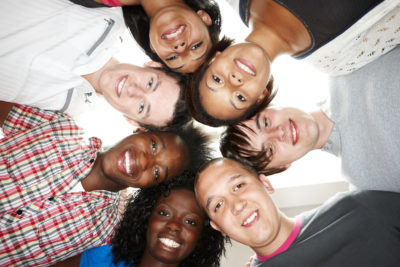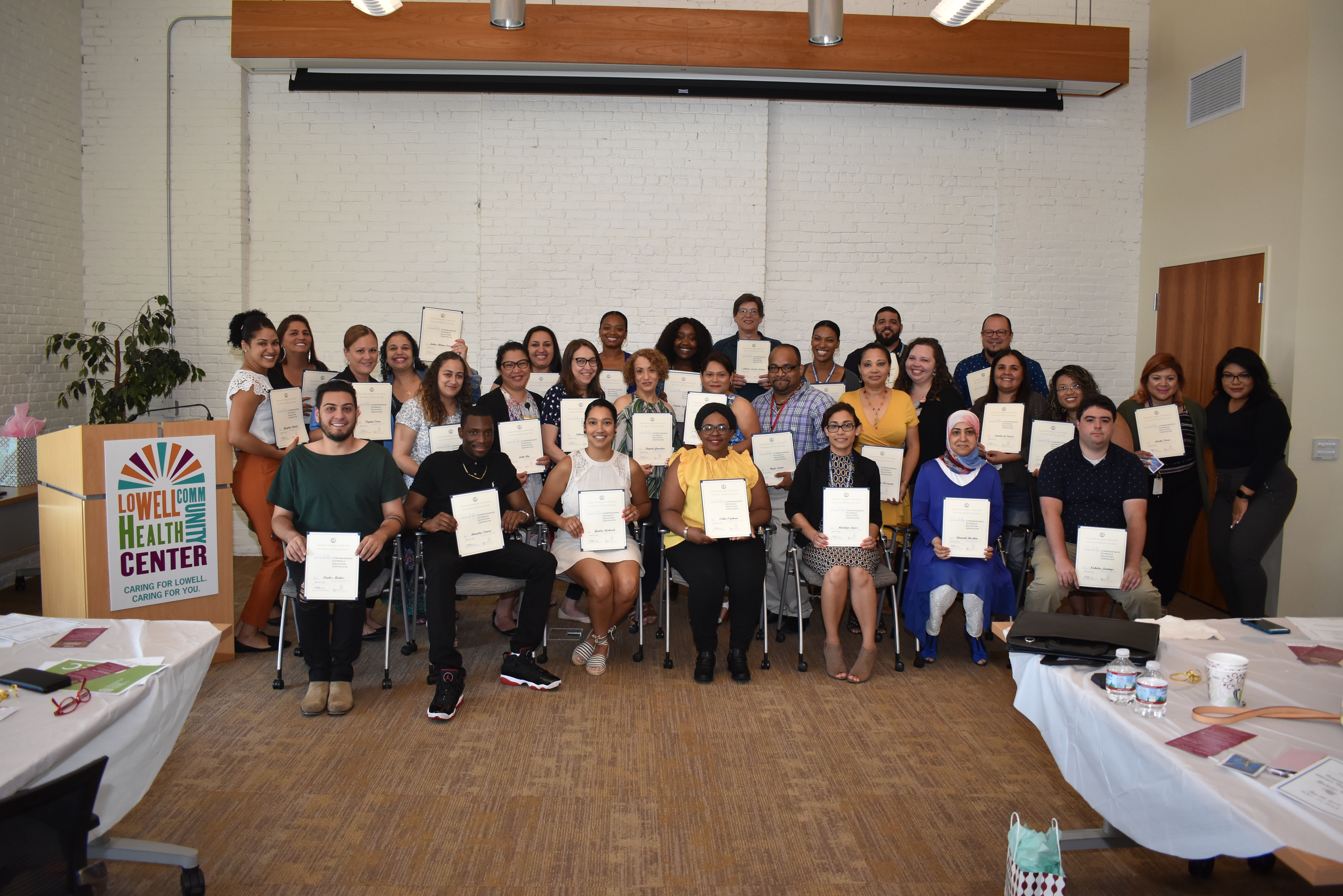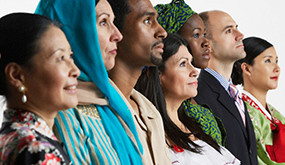Health Equity

Ensuring that health care and human services are accessible to all individuals is the priority of the Greater Lowell Health Alliance Health Equity Task Force.
We invite you to join us.
Who We Are

The mission of the Health Equity Task Force is to increase the capacity of healthcare and human service providers to encompass and provide better services to individuals of diverse backgrounds. The Health Equity Task Force fulfills this mission by increasing awareness for social determinants of health, cultural competency and health disparities within the Greater Lowell area.
Task Force Chair
Mercy Anampiu, Lowell Community Health Center
Ashley Hall, Greater Lawrence Family Health Center
Health Equity Task Force Initiatives:
Bridging the Gap Interpreter Training

Professional Medical Interpreter Training: An intensive 40-hour training program that prepares participants for national certification. Offered through Lowell Community Health Center two times per year.
No re certification process -Upon completion of the program – you are certified for life! There have been over 350 professional medical interpreters trained thus far.
Our GOAL – to link people trained through the Bridging The Gap Training with agencies in need of medical interpreters to increase access within our communities.
* GLHA Scholarships Available – The GLHA offers 5 scholarships a year to the BTG program. For more information please contact Kerrie D’Entremont.
Join Us
 We invite you to join us in our efforts to improve access to quality health care and human services for all individuals. Attend one of our task force meetings or contact Chair Mercy Anampiu or Ashley Hall to learn about how you can get involved. The Health Equity Task Force meets
We invite you to join us in our efforts to improve access to quality health care and human services for all individuals. Attend one of our task force meetings or contact Chair Mercy Anampiu or Ashley Hall to learn about how you can get involved. The Health Equity Task Force meets
10 – 11:30 a.m. on:
- July & August Cancelled
- Thursday, September 25, 2025
- Thursday, October 23, 2025
Addressing the Need
Cultural competence in health care and human service describes the ability to provide care to individuals with diverse values, beliefs and behaviors. Cultural competency has a positive effect in health care and human service delivery by enabling providers to deliver services that are respectful of and responsive to the health beliefs, practices and cultural and linguistic needs of diverse members of the community.
Nationally
- Barriers to cultural competency in health care and human services include a lack of diversity in health care’s leadership and workforce; systems of care poorly designed to meet the needs of diverse patient populations; and poor communication between providers and individuals/patients of different racial, ethnic, or cultural backgrounds.
- Racial and ethnic minorities have higher morbidity and mortality from chronic diseases, while having less access to health care and health insurance.
- Language and communication barriers can affect the amount and quality of health care received. Of the more than 37 million adults in the U.S. who speak a language other than English, some 18 million people — 48 percent — report that they speak English less than “very well.”
- Adult literacy surveys estimate that 40 to 44 million Americans do not have the necessary literacy skills for daily functioning. Those with low literacy skills use more health services, and the resulting costs are estimated to be $32 to $58 billion — 3 to 6 percent — in additional health care expenditures.
Locally
The 2022 Greater Lowell Health Needs Assessment, a collaborative effort of the GLHA, Lowell General Hospital, and University of Massachusetts Lowell, has identified needs for improvement in culturally competency in a very diverse region.
Those most at risk were identified as the elderly; low-income individuals; LGBTQ (lesbian, gay, bi-sexual, transgender, queer/questioning) community; undocumented immigrants; and members of the Cambodian, Brazilian, Latino, Portuguese, African, and Burmese communities.
Our Impact
Since its inception, the Health Equity (previously known as Cultural Competency) Task Force has successfully reached out to the community to increase awareness of cultural diversity and collaborate with community partners to break down barriers and improve cultural sensitivity and competency.
Current Initiatives
- Ran a successful speaker series that included QPR (Suicide Prevention) Training and Health Literacy 102 for the Greater Lowell Region, bringing together over 50 attendees from various organizations.
- Addressed the increase of Haitian/Creole community members by adding Haitian/Creole as a language available for the Healthcare Navigation Video available on the GLHA website & GLHA YouTube Channel.
- Helped to establish a new Subcommittee with the GLHA, the Older Adult Subcommittee which is focusing on Age Friendly goals.
- Developed The Health Campaign Handbook supported by a generous grant from Massachusetts Health Decisions. A Toolkit of Real-World Strategies for Community Health Campaigns.
Past Initiatives
Past Initiatives:
- Progress continues with the Healthcare Navigation Video, which will guide new immigrants in navigating the healthcare system. The GLHA, has finished videos in the following languages: Spanish, Portuguese, Khmer & English. We are currently working on adding Hattian/Creole to the list of languages available. The videos can be found HERE
- GLHA assisted the City of Lowell in bringing back the PRIDE Festival in 2022. PRIDE 2023 was a huge success and the committee is currently planning an even larger event for 2024.
- The task force revived the Healthcare Navigation Video that was in full swing pre-pandemic,
recording the narration (with the help of a University of Massachusetts Lowell student), and moving ahead with a local videographer to begin developing the visual content. View and download the Navigation Video Toolkit. - For the 2022 PRIDE festival, the GLHA collaborated with The Center for Hope and Healing and the City’s Cultural Affairs and Special Events (CASE) to develop a PRIDE month calendar and a local resource guide for 2-Spirit, Lesbian, Gay, Bisexual, Transgender, Queer/Questioning and Non-Binary folks. The 2SLGBTQIA+ RESOURCE GUIDE can also be found here.
